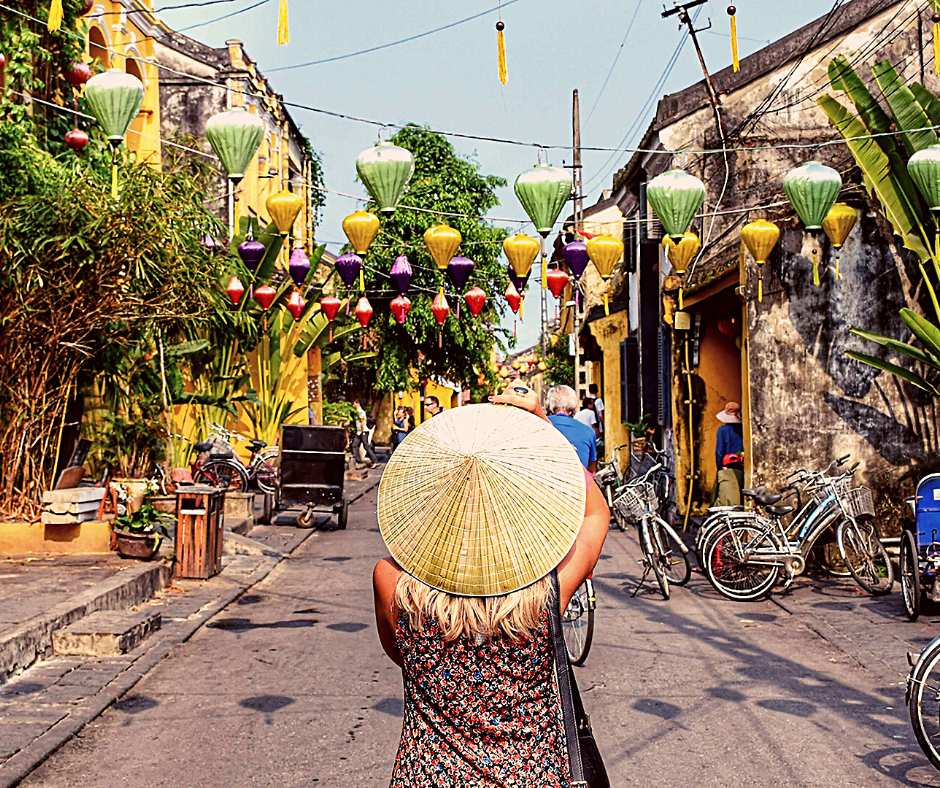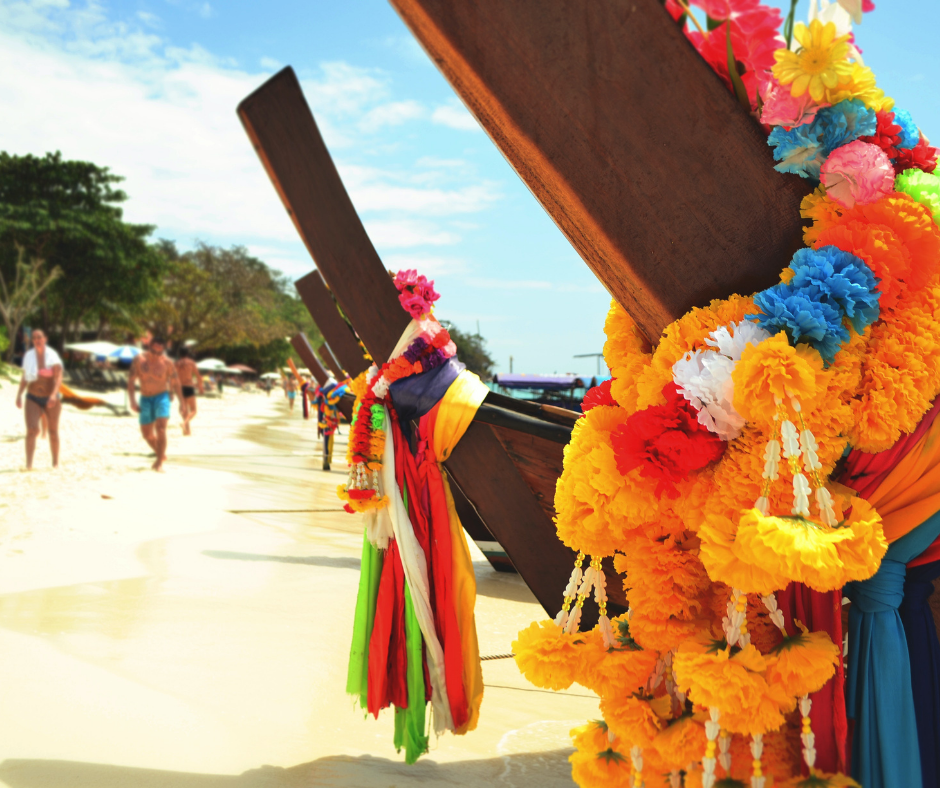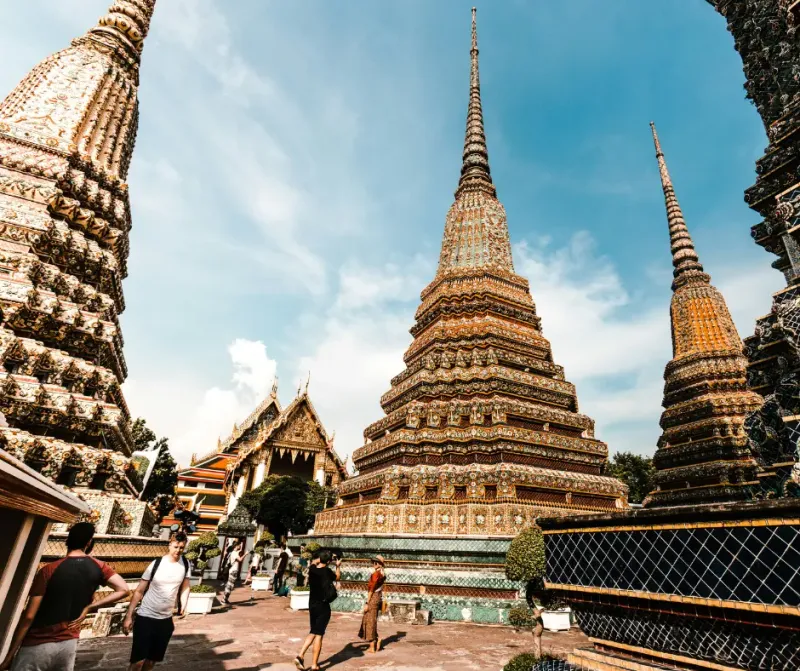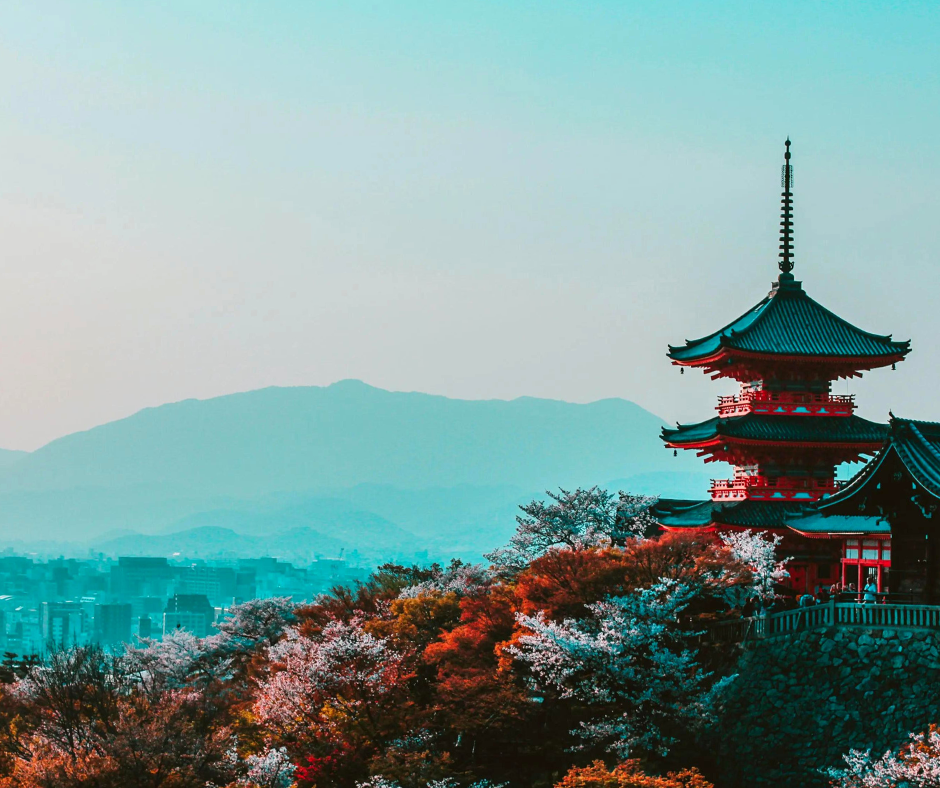Last updated April 25, 2025: Do you plan to travel to Thailand? Check Thailand’s entry requirements first and get your worldwide health insurance before you take off.
🌱 Health insurance for Thailand
🇹🇭 Entry requirements for Thailand
- Visa: Check out this site to see if you are exempt. The visa application must be submitted online (e-visa) at least 3 weeks before the expected date of departure.
- Digital Nomad Visa: Valid for 5 years. Multiple 180-day extensions within 5 years. Proof of roughly €12,500 in your bank account and no tax obligations.
✈️ How to get to Thailand
- Plane: Flights to Thailand are available from several national and international carriers. The national airline is Thai Airways, which flies from dozens of global locations. Bangkok Airways offers international flights to and from destinations within Asia.
🏡 How to find a place
- Airbnb: During the wet season (May to October), the average monthly price for an apartment or private room in a shared house on Airbnb is €450 to €550. During the cool season (November to February), the average monthly price is between €550 and €800. Airbnb is a great option to check out short-term stays.
- Facebook: When looking for a mid-term rental, it might be worth monitoring some Facebook groups, such as 'House for Rent in Chiang Mai' and 'Expat Services - Bangkok, Thailand', including 'Apartment and Condo for Rent'.
- Coliving: Thailand is also known for its nomad scene, often found in coworking and coliving spaces. Here are our 3 top spaces worth checking out:
- Bangkok: LITA Bangkok: For €700 per month, you can book yourself in the beautiful area of Bangkok, which is known for providing one of the most significant nomad communities and networks in the area. Located at the center of it all, this charming five-story shophouse was a former warehouse and office owned by a local Thai-Chinese family. Fully revamped with provisions of comfort and style, LITA Bangkok encourages guests to explore the city and experience authentic local living from this little alley at the heart of Bangkok's new Central Business District.
- Chiang Mai: Hub53 Coworking and Coliving Space: For €165 per month, you will find rooms that fit any nomad's budget and needs, from standard superior rooms to roomy king-sized accommodations. Residents also have 24/7 access to the coworking space, allowing them to work at any time. Hub53 is a coworking, coliving, and community space designed to help digital nomads and travelers make the most of Chiang Mai. Those looking to escape the 9-to-5, see the world, pursue their passions, or build the next great app will find a home at Hub53. Here, you will find yourself a brief 8-minute walk from Nimman Road and some of the best restaurants and cafes Chaing Mai has to offer.
- Koh Lanta: KoHub, founded over 8 years ago, is a community-focused coworking and coliving space that is open from November to April. Kohub is available for around €1,200 per month, including private accommodation on-site, daily meals, and community and coworking spaces. You can combine Koh Lanta easily with Phuket and Krabi. Or hop on a short flight to Koh Samui.
🚌 Public transport
- Metro and BTS: This applies only to Bangkok. The city offers a modern public transportation network, linking the airports to the city and the numerous districts to each other. A great way is to purchase the Rabbit card and top it up with a small amount.
- Tuk Tuk: This multicolored 3-wheeler is the most authentic form of transportation. Since it’s a tourist favorite, it tends to be expensive, costing anywhere between €2 and€ 4. However, we’d recommend at least one ride for the sheer experience! Make sure you know a few Thai phrases so you don’t get charged an absurdly high fee.
- Taxi: Bangkok has the highest ratio of taxis to people worldwide! Owing to the meter system that was implemented several years earlier, this mode of transportation is highly reasonable. The price starts at €2, then €0.50 for the first 2 km, followed by €0.50 per additional km. If you’re traveling a short distance, it might be better to opt for a motorcycle taxi instead. It begins at only €1.
- Grab: Grab is not necessarily cheaper than meter taxis. However, unofficial reasons why a Grab driver in Thailand may refuse a ride include, e.g., if you are carrying takeaway food, a pet, or if the ride is too short. They may also refuse a ride when they are unsure of how to get there or if they don't speak English. If all these hurdles are off the table, Grab is a good way to travel around the cities.
- Songthaew: Essentially a tiny pick-up truck with two rows of seating at the back, Songthaews are one of the cheapest and most convenient ways to get about smaller towns. A little buzzer on the roof will alert the driver to stop, after which you can make a payment of 10 Baht or more.
🏘 Where to stay in Bangkok
The cost of living for expats is around €900 to €1,500 a month. Bangkok is a vast city, and it depends on where you stay and what you find. The cost of living for ex-pats is a lot more than for locals, and the shorter you stay, the more you will pay. One of the most expensive ways to rent a place is by booking through Airbnb. You can calculate the cost of living with nomadlio.
- Ekkamai: For a middle budget of around €800 rent (no Airbnb), check out Ekkamai in the Sukhumvit area, with easy access to the BTS line, shopping malls, restaurants, bars, and gyms. Ekkamai is an area where traditional Thai culture blends in with the modern lifestyle.
- Thong Lo: If you have a bigger budget, stay where the upper-class Thais live, for example, in Thong Lo. Surrounded by trendy bars, hip eateries, and boutiques, this is a place where you find many expats, too. You can expect to pay around €900 a month for a modern apartment in a condo (no Airbnb booking).
- Sathorn: With an even bigger budget for rent, stay in the Sathorn area. This centrally located neighborhood is near Lumpini Park, a green oasis in the city center, and an excellent spot for a run or walk.
- Phra Kanong: When visiting Bangkok on a tight budget, check out the Phra Kanong area, which is very local with a smaller expat community.
🧑🏻💻 Where to work from in Bangkok
Coworking spaces
- Wolf Coworking: Located in the Silom/Sathorn area, Wolf Coworking space is a professional coworking space with a nice nomad and expat community that mixes with local Thai entrepreneurs and freelancers. Memberships start at €96 a month.
- The Work Loft: This well-designed loft-style coworking space, located in Silom, grants its members 24/7 access. A 1-month membership costs 110 Euro, and you have several floors to choose from.
Coffee shops
- Too Fast to Sleep: This coffee shop in Siam is a 24/7 spot, mainly for students, but nowadays, you'll also find nomads working here. Too Fast To Sleep is for you if you don't mind a little noise here and there, as it can be crowded with studying groups. The significant advantage is the long open hours, which is excellent when working in another time zone.
- Yolo Cafe 15: The baristas take their job very seriously here, and you can find delicious art in a cup, from vegan to non-vegan, little snacks, and a chat with the staff. If you're here for work, you'll also find tables, Wi-Fi, and plugs. Yolo Cafe 15 is located in Sukhumvit Soi 15.
- AIS Design Center: Located in Sukhumvit, the AIS Design Center offers lightning-fast internet with a download speed of around 600 Mbps. Although it's a coffee shop, if you want to work, you need to purchase a day pass. The downside is that the temperature is cold, and many nomads leave after a few hours as they can't move their fingers anymore. Some people like those temperatures, though, so if that is you, this is your place.
🏘 Where to stay in Chiang Mai
The nomad capital, Chiang Mai, in northern Thailand, is around 20% to 30% less expensive than Bangkok. The cost of living for expats can go down to €800 to €1,000 a month - if you want to stay on a budget. Of course, you can find beautiful villas and big apartments for a lot of money in Chiang Mai.
- Nimmanhaemin: Especially when arriving in Chiang Mai for the first time, Nimmanhaemin, short for Nimman, is a great place to land in. Northwest of Oldtown, you find here the most elaborate coffee bars, popular restaurants, the Maia shopping mall, and many condos rented by expats and long-term nomads. Nimman provides everything you need, from groceries to gyms, yoga studios, and coworking spaces.
- Old Town: Maybe a bit more touristy in parts, Old Town offers the traditional Thai style of living, featuring wooden houses, smaller condos, well-designed hotels, and low-rise shopping facilities spread out in squares and alleys. You'll find coworking spaces here, for example, Punspace, as well as restaurants and bars ranging from low to upscale, along with sightseeing and walkable, cycling-friendly streets. Living in Old Town means living in the former Lanna capital, surrounded by moats, ancient city walls, temples, and historic sites.
- Nong Hoi: If you prefer to live closer to the locals, with fewer tourists and fewer facilities that cater to Westerners, try out Nong Hoi. Home to the Wung Kam Kum temple complex, Nong Hoi is an interesting area for families and also for budget travelers.

🧑🏻💻 Where to work from in Chiang Mai
Coworking spaces
- Punspace: A serious coworking space with 3 locations spread over Chiang Mai. Memberships start at €70 a month. Punspace is well known for its community lunches and events. They attract the serious nomad. Sometimes, the space is so quiet that even dropping a pen gets you looks from your coworkers. However, aircon, outside work spots, as well as meeting rooms, phone booths, and shared desks make Punspace a great coworking space in Chiang Mai.
- Yellow Coworking: Surrounded by lush flora, Yellow Coworking can't help but relax and inspire. With 16,000 square feet of coworking space, finding a spot at the table isn't a problem. The space offers shared and private office spaces, meeting rooms, event areas, soundproof phone booths, YouTube streaming rooms, recreational zones, and other coworking facilities for digital nomads, remote workers, and roaming IT expats. The monthly rate starts from €90 a month.
Coffee shops
- Artisan Café: Artisan is a secret coffee shop gem tucked away in Chiang Mai's southern districts. Dark wooden tables, hanging plants, and specialty coffee make this café an excellent spot to chat with a friend or work in one of the nooks for a few hours.
- Ombra Caffe: Located in the Nimman area, on a dead-end street, Ombra Caffè is an excellent spot for brunch and breakfast. With its indoor and outdoor seating areas, tasty food and coffee, and superb working tables, Ombra Caffe is an excellent choice for a work session.
- Buristro at Buri Siri: Buri Siri is a boutique hotel that also doubles as a café and coworking space for digital nomads. The best part? They have strong wifi and a large pool for you to take a dip if you need a break. To access the space, you’ll need to purchase a day pass.
🏝️ Thai islands
Thailand would not be complete without mentioning its stunning islands. The best islands for nomads are
- Koh Lanta: "Lanta" has one of the last individually run coworking spaces that survived the massive Covid closure of spaces. KoHub, founded more than 7 years ago, is a community-focused coworking and coliving space open from November to April. You can easily combine Koh Lanta with Phuket and Krabi.
- Koh Phangan: The small island is located close to Koh Samui and Koh Tao, two world-class diving spots. The island of Koh Phangan has a strong hippie vibe, a coworking space, and all the tropical island atmosphere you're looking for.
- Koh Samui: Located next to Koh Tao and Koh Phangan, Koh Samui is a well-known destination for water sports, island life, nature, hiking, wellness, and a digital nomad lifestyle. For work, visit Coffee Connections, which stands out as a beacon of inspiration driven by the passionate and dynamic duo behind it: Marina and Luke. Coffee Connextions This extraordinary coworking space goes beyond the conventional concept, offering a unique environment where community, creativity, and wellness intersect harmoniously.
🚊 How to travel around Thailand
- Train: Thailand is one of the few countries in the region with a decent rail network. It covers 2,796 miles and is one of the best and cheapest ways to get around the country. A monthly train pass costs €33.50.
- Bus: Since trains don’t go everywhere in Thailand, taking the bus is your next best option. Buses are the widest form of transportation here. You can go anywhere in Thailand by bus. Though they often watch bad Thai movies with the sound turned up too loud and blasting the air conditioning, they are a comfortable and spacious ride.
- Taxi: For shorter distances in Thailand, it is possible to get from A to B by Taxi, and it’s not too expensive. For example, a taxi from Bangkok to Hua Hin costs around 2,000 baht, which is roughly €50 for a nearly 3-hour journey. So if money isn’t an issue, then getting to and from particular places is possible via taxi.
- Scooter rental: Renting a scooter in Thailand is a budget-friendly option. Depending on the exact location, you could see different prices. To rent a scooter costs €65 a month.
🎖Must see in Thailand
- The Golden Mount temple in Bangkok is built on top of a hill, offering a 360-degree view of the city. You can walk up its long staircase, where you find fountains, statues, and various gongs that you can play to attract luck.
- The Grand Palace in Bangkok is the most visited tourist site in the city. Built in 1782, the year Bangkok officially became the country’s capital after the fall of the Ayutthaya and Thonburi kingdoms, the complex includes more than 100 buildings, palaces, and pavilions. A 1.9-km-long wall surrounds it. The king of Thailand still performs official ceremonies in the complex.
- Khao Yai National Park was the first national park established in Thailand and is the country's third-largest. Covering an area of 2,168 square kilometers, it is a vast site to visit. The park comprises rainforests and grasslands, which together support a large number of animals you can see. There are an estimated 300 species of birds in the park, as well as bears, elephants, deer, gibbons, and macaques. There are a couple of waterfalls in the park that are well worth visiting and are easily accessible by car.
- Koh Lanta: Located in the Andaman Sea, Koh Lanta is a beautiful island that is only 20 km long. There are 17 dive shops on the island, and some of the most beautiful diving in the world is to be had in the sea surrounding the island. Famous dive sites include Hin Daeng and Hin Muang, which are considered the best in the area. When staying on Koh Lanta, check out Kohub, the island's only coliving space, featuring a colorful international mix of nomads.
💡 Good to know
- Internet: The median internet speed for fixed broadband is approximately 189.14 Mbps for downloads and 153.68 Mbps for uploads.
- SIM card: Although the country offers many internet providers, DTAC has quickly become one of the most popular options for tourists visiting Thailand who want quick and easy connectivity. You can buy SIM cards at the airport, in local shops, and even at convenience stores.
- Digital nomad community: The majority of digital nomads are probably found in Chiang Mai and Bangkok. Check out the local Facebook groups to connect with fellow nomads.
- Currency: In Thailand, you pay in the Thai Baht. 1 Euro = 35 Baht. You can exchange euros at the airport, and many places have official currency exchange services.
- Climate: Thailand's climate is subtropical throughout most of the country, resulting in year-round hot and humid weather conditions. The wet season starts from May to October. During the colder season, November to February, the hot season is March to May.
- Safety: Thailand is generally a safe country for travelers. Yes! Thailand is rated as one of the least dangerous countries in Southeast Asia for travelers. There is a history of social unrest and violent conflicts in parts of the country, but crimes in tourist areas are rare.
🚧 What to avoid
- Burning season: The city of Chiang Mai lies in a valley surrounded by mountains. Chiang Mai has an extensive burning season, which typically occurs between January and March. Some days, the smoke is so thick that you can't see it for a couple of meters. It is highly to avoid.
- Malaria: According to the WHO, “malaria risk exists throughout the year in rural (especially forested and hilly) areas of the country, mainly toward the international borders, including the southernmost provinces. There is no risk in cities (e.g., Bangkok, Chiang Mai, and Pattaya), urban areas, Samui Island, and the main tourist resorts of Phuket Island” (WHO). The risk of catching malaria is higher in the border areas between Myanmar and Cambodia.
- Dengue fever: Another painful disease, and I talk from personal experience, is dengue fever. You can get it through bites from the Aedes mosquito, which is primarily active during the day. There is not much you can do except use mosquito repellent. However, tests and treatment can get costly.
- Traffic accidents: Accidents caused by traffic are the third most common cause of injury in the kingdom, and 74% of all traffic accident deaths are attributed to motorbike drivers. Around 80% of all accidents are caused by young men in their early 20s. Although the WHO recommends an urban speed limit of 50 km/h, the urban speed limit in Thailand is 80 km/h, which experts find alarming. Add the manual enforcement of traffic laws to control alcohol levels, speed limits, and helmet laws, and you can imagine why Thailand is ranked high in fatality rate for traffic accidents. The average annual fatality rate for traffic accidents has been around 2ok people in the past 10 years.
- Hands Off the Monks: Don’t touch monks. This mainly applies to women, as they are not allowed to come into physical contact with Buddhist monks. If you want to give something to a monk, don’t hand it to them directly. Put it down so they can pick it up. A monk will do the same if he wants to give anything to a woman. Remember this if you donate or provide alms at a temple.
- Don’t withdraw small amounts from ATMs: The reason for this is that even if your home bank charges zero or low fees for overseas ATM withdrawals, Thai banks typically do not. Users with overseas cards are charged 220 Baht (approximately €6) for each withdrawal. Thailand is still largely a cash-based society, so you’ll need to get used to using ATMs again.
🚴🏻♀️ How to stay healthy
Stay active
- Muay Thai: If you want to study the ancient art of Muay Thai, which better place is out there than Thailand? By the way, Genki’s health insurance covers Muay Thai. So, let’s get ready to rumble!
- Yoga: If kickboxing is not your thing, why not follow the ancient yogis? Thailand offers wonderful yoga retreats and drop-in yoga classes in most tourist areas. Check out BookYogaRetreats by Tripaneer for ideas to book your yoga teacher training or your next yoga retreat in one of the many beautiful and unique resorts.
- Outdoor activities: Thailand offers a wide range of outdoor activities. Outdoor activities include surfing, running, hiking, cycling, canoeing, or SUP. Sander from Go To Thailand selected some outdoor activities that give you an idea of what you can do in Thailand.
Health risks
- Water quality: Although tap water meets international standards in Bangkok, few people drink it. And it’s the same across the country: Thais always drink bottled water. So, stay safe and do the same, regardless of where you're visiting.
- Air quality: In April 2022, the PM2.5 concentration in Thailand's air was four times higher than the WHO's annual air quality guideline value. This means the Thai population breathes in air that is too polluted, which will affect their health.
🪪 Digital Nomad Visa Thailand
- Financial requirements: Proof of roughly €12,500 in your bank account.
- Fee: €250.
- Length: Valid for 5 years. Multiple 180-day extensions within 5 years.
- Health insurance: You need travel health insurance that covers the entire length of your stay, such as Genki Traveler.
- Income tax: Depends on your income.











